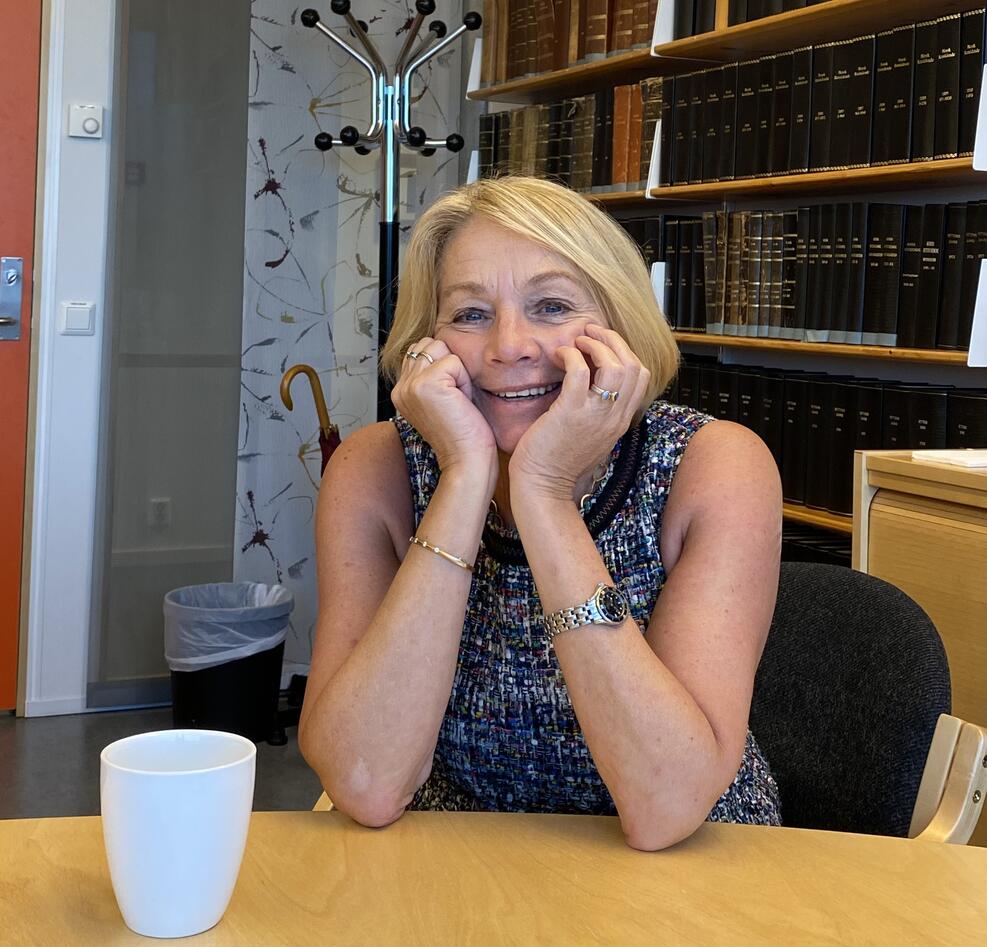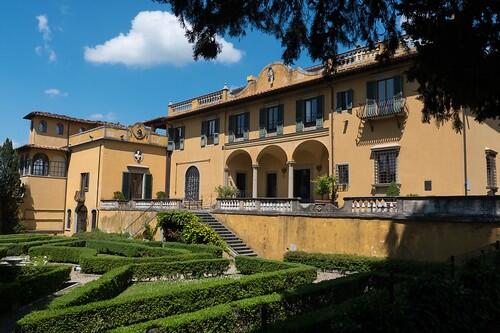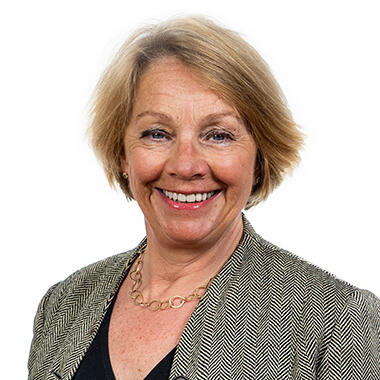Welcoming Dr. Leigh Hancher as a Professor II
The renowned and highly acclaimed Professor Dr. Leigh Hancher started as a Professor II at the Faculty of Law at the University of Bergen in November. On this occasion, we had a little chat with her.

Main content
Leigh Hancher is Professor of European Law at the University of Tilburg, Part-time Professor at the Florence School of Regulation within the European University Institute, and Director of the FSR Energy Union Law Area. Her research interests include energy market regulation, EU state aids, and energy market governance. For the past three decades, she has also worked part-time as a Senior Advisor in the law firm Baker Botts in Brussels, assisting a wide range of clients facing the European Commission and national authorities. Now she has also taken up a position as a Professor II here at the Faculty of Law at the University of Bergen, affiliated with the research group for Natural Resource Law, Environmental law and Development law.
Attracted by a young and international faculty
- I was contacted by Ignacio (ed: Herrera Anchustegui), whom I have known for a number of years. He asked me if I wanted to collaborate with the faculty, and possibly take up a position as Professor II here. I said yes pretty quickly, to be honest. For me, the faculty has the advantage that it is not very big, and therefore has a very tight knit research environment. In addition, it consists of several very young, international and well-motivated researchers and PhD candidates, which motivates me as well. This made it easy to accept a position as Professor II here, says Leigh.
The faculty is not very big, but it is very young, dynamic and international
Passion for teaching
It is not without reason that Leigh was recruited by Ignacio and UiB. There is hardly a professor in Europe within state aid and energy market regulation with more experience. For the past 20 years, she has taught at the University of Tilburg and supervised PhD candidates there, mainly in energy-related issues. She is also a member of the Dutch "Mining Council" and director of the FSR Energy Union Law Area, part of the highly acclaimed Florence School of Regulation within the European University Institute. Here she works to make the university a pioneer institution in online learning, among other things.
- What makes the Florence School of Regulation so interesting is the way we have managed to make our online learning more interactive and exciting for our students. In the beginning, we mainly produced videos on various topics that we posted on the website, but this facilitates little dialogue. Therefore, we invested a lot of time and money in developing more interactive and interdisciplinary online courses, seminars and workshops within topics such as the European Green Deal and the European energy market.
Furthermore, Leigh says that FSR has developed a number of unique offers for students who want to learn more about energy-related issues. First and foremost, they have an extensive scholarship scheme, which aims to make their courses more open and accessible - in Europe and Globally, for both students and professionals. In addition, they arrange a summer school on regulation of energy utilities, which is open to academics, researchers and professionals alike. These offers are an important part of the interactive and interdisciplinary teaching in Florence, and Leigh encourages everyone in Bergen with an interest in the field to check it out.
Dynamic and challenging area of law
Leigh's eyes light up when we ask why she finds energy market regulation law, state aid law and competition law so interesting, and how she became one of Europe's foremost experts on these topics.
- As a student, I traveled to Florence to write my doctoral dissertation, and by chance I got a position as a research assistant to a recently appointed professor who came to Florence to start a research seminar in energy law. Since then, energy regulation has developed a lot and become a really "hot topic" in European law. As I had already gained valuable experience and knowledge when this happened, I was lucky enough to profit from it and really build a profile for myself within energy law. All in all this work has proven to be very interesting and exciting, allowing me to travel all over the world - now to Norway.
Leigh does not exaggerate when she says that energy market regulation is an area of law that has been in dramatic development and the subject of heated debate in recent years. The Norwegian skepticism of ACER and the EU's third energy market package illustrates this well.
- Energy law has gone from being very public law in nature to becoming more market-oriented private law. In addition, the area has become very connected to state aid law. Few people have written about these interconnections in the past, and therefore myself and others have set out to provide clarifying textbooks and new research. However, there is still work to do. New technology is emerging, and with it new legal issues and challenges. Therefore, every year in energy law is completely different from the previous one.
Norwegian electrification as a research focus
Leigh makes no secret of the fact that she has several aims for her work in Bergen.
- First and foremost, I hope that I can be a resource for younger researchers at the faculty. I have become quite "well-connected" over the years, and in that way I can put people in touch with eachother and point people in the right direction when looking for interesting projects to participate in.
- In addition, I think that a lot of exciting things are happening in Norway, especially within electrification. The drive to electrify the transport sector and the Norwegian continental shelf shows that Norway is a pioneering country, and really sparked my interest. I would love to do research in this area, and show the rest of Europe what is happening here. The need to transition to renewable energy sources will be challenging for everyone, and we must learn from each other to make it happen.
The need for energy transition is the biggest challenge we face in this area for the future
We thank Leigh for the chat and warmly welcome her as a Professor II here at the faculty!



